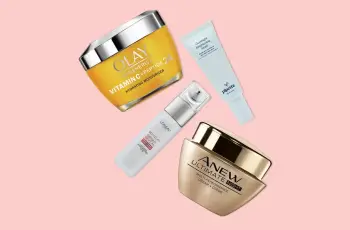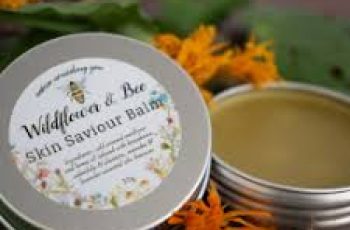
What Happens If You Don’t Pop a Pimple?
Dermatologists often advise, “Don’t pop a pimple.” But what actually happens if you leave a pimple alone? This article explores when you should pop a pimple and when you should resist the urge.
Most importantly, it explains what happens if you don’t pop pimples.
No one likes waking up to a pimple on their face, especially when it appears at the worst time. We often want to get rid of it fast by popping it.
However, the truth is, waiting it out is usually the best way to heal pimples quickly without causing more damage.
Will a Pimple Go Away On Its Own?
Yes, pimples will go away on their own if left untouched. Your skin has a natural exfoliation process that pushes impurities and clogged pore contents up to the surface.
This natural clearing mechanism helps remove pimples without intervention.
When you start using treatments like retinoids, you might notice what’s called a “purging” phase. This happens because your skin is speeding up its natural exfoliation and pushing blocked debris out.
During purging, pimples may seem to worsen briefly before they improve.
As this purging process continues, the pimple either rises fully to the surface or the inflammation calms down, and the bump disappears naturally.
With patience and the right skincare products, you can help this process along without picking or squeezing.
If You Don’t Pop a Pimple, Will You Get a Scab?
Usually, pimples do not cause scabs unless you physically injure the skin by popping or scratching them.
Scabs form when the skin surface is broken, either from nails, squeezing, or using tools like comedone extractors.
If a scab does form, avoid picking at it. Picking prolongs healing, increases inflammation, and often leads to scars or dark spots.
Like any wound, a scab will naturally fall off in about 3 to 12 days as new skin forms underneath.
Applying a topical antibiotic ointment can help speed up healing and reduce infection risk, but the best advice is to leave scabs alone to heal naturally.
The Three Kinds of Pimples and When You Can Pop Them
Understanding the type of pimple you have helps you decide whether or not to pop it. There are three main types of pimples: comedones, papules, and pustules.
Only pustules are safe to pop under certain conditions.
1. Comedones (Whiteheads and Blackheads)
Whiteheads, also known as comedones, are clogged pores filled with trapped sebum, dead skin cells, and bacteria. They are the earliest stage of pimples and should never be popped.
Popping a whitehead can push debris deeper, causing cysts or scars. Instead, apply a retinol or retinoid to help bring these to the surface naturally.
Given time, whiteheads will clear on their own.
What Happens If You Don’t Pop a Whitehead?
It will come to the surface naturally and heal without scarring. Using retinoids speeds this process by enhancing skin cell turnover.
2. Papules (Early Inflamed Pimples)
Papules are small, red, raised bumps without pus. They occur when inflammation spreads in the skin layers due to bacteria and oil.
Unlike pustules, papules do not have a visible head filled with pus, so they are not ready to pop.
The immune system walls off the infection inside, preventing the spread.
Popping papules disrupts this, often making the acne worse by pushing bacteria deeper, causing more inflammation and possible scarring.
What Happens If You Don’t Pop a Papule?
It will reduce inflammation and heal gradually with proper skincare, such as using anti-inflammatory or antibacterial treatments.
3. Pustules (Pimples with White or Yellow Heads)
Pustules are pimples with visible pus-filled heads. They usually appear white or yellow and are the most “ripe” pimples for extraction.
Because the pus is centralized, pustules can sometimes be popped safely if done hygienically.
That said, popping pustules should be done cautiously and ideally by a trained professional to avoid infection or scarring.
If you choose to pop at home, ensure hands and tools are clean, and do it gently to minimize trauma.
Why You Should NOT Pop a Pimple
Despite the temptation, popping pimples prematurely can make things worse. Here’s why you should resist:
Pushing bacteria and pus deeper into the skin can cause longer-lasting inflammation.
It can create painful cystic acne by spreading infection under the skin.
Popping increases the chance of scarring and hyperpigmentation.
Your nails and fingers carry bacteria, raising the risk of skin infections.
It prolongs healing time and can lead to more pimples forming.
Leaving pimples alone lets your body’s immune system heal the skin naturally and reduces long-term damage.
What Skincare Should You Use to Get Rid of Pimples?
Using the right acne-fighting ingredients supports your skin’s healing without damaging it.
Retinoids: These speed up skin cell turnover and help push pimples and clogged pores to the surface faster. Retinoids also stimulate collagen production, helping skin repair and reducing scars.
Salicylic Acid: This beta hydroxy acid (BHA) has anti-inflammatory and exfoliating effects that help clear pores and reduce inflammation. Cleansers with salicylic acid can be helpful.
Benzoyl Peroxide: Known for its antibacterial properties, benzoyl peroxide kills acne-causing bacteria and reduces inflammation.
Colloidal Silver: An alternative antibacterial ingredient with soothing properties beneficial for acne-prone skin.
You can also try targeted spot treatments like Murad Outsmart Acne Clarifying Treatment, which helps pimples heal faster. Use these treatments twice a day on affected areas for best results.
Summary: Should You Pop a Pimple or Not?
Only pop pimples when they are pustules, with a visible white or yellow head. Avoid popping whiteheads (comedones) and papules because it worsens acne and may cause scarring.
Picking at acne scabs or pimples slows healing and increases the risk of permanent marks.
The best way to prevent pimples is to use skincare suited to your skin type. Products formulated for your specific needs reduce breakouts without irritation.
How to Find the Right Skincare for Your Skin
Take a skin type quiz like the Baumann Skin Type Quiz to learn what products suit you best. Using the right products for your skin type prevents papules and pustules from forming.
Personalized skincare routines tailored to your skin’s needs are the key to clear, healthy skin without the temptation or damage caused by popping pimples.


